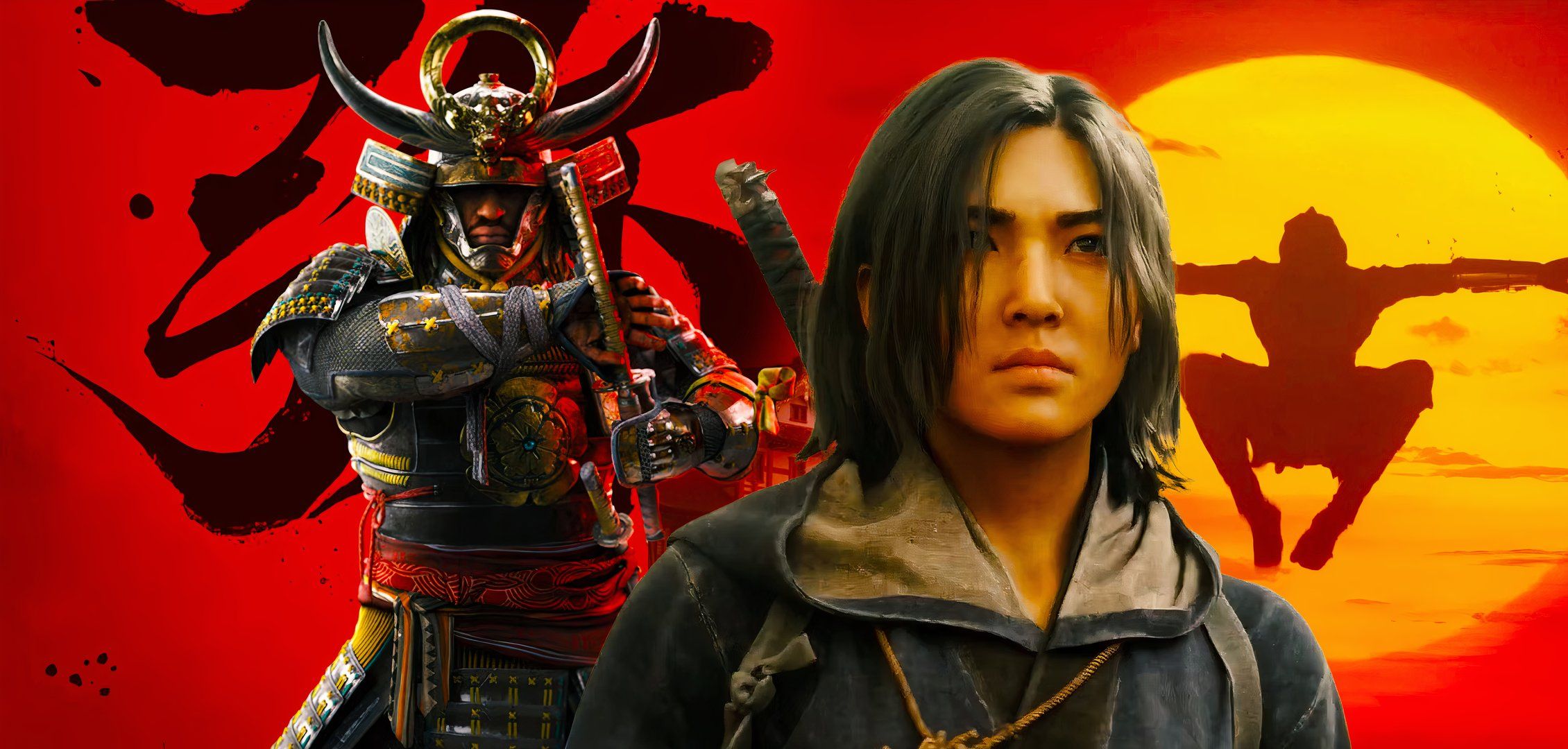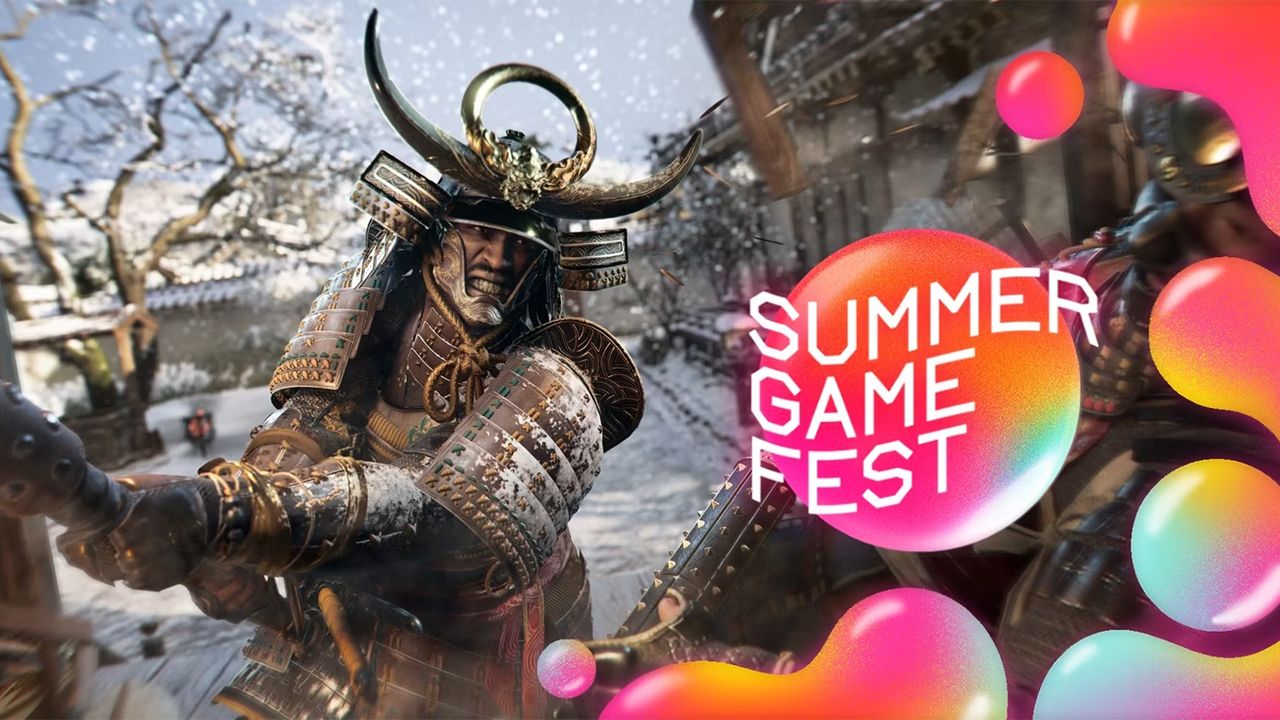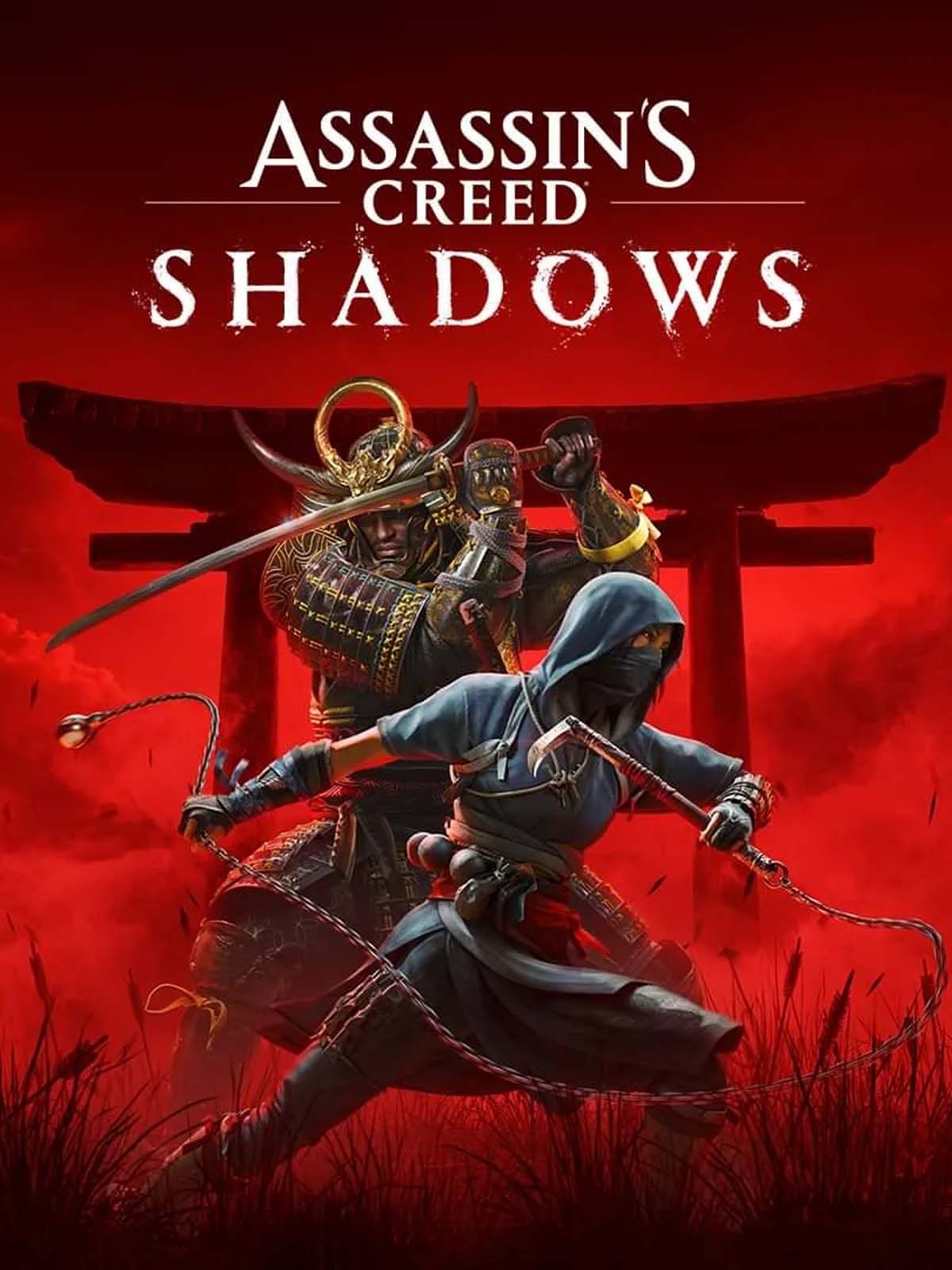Summary
-
Assassin’s Creed Shadows
will finally take players to Feudal Japan with both shinobi and samurai gameplay styles. - The backlash from Japanese audiences led to a petition with nearly 100k signatures to cancel the game’s release.
- Ubisoft responded, defending their portrayal of historical figures and stating their intention as historical fiction.
After many years of fans being extremely vocal in their desire for the history-hopping series to visit Feudal Japan, Assassin’s Creed Shadows is finally set to visit this setting later this year. While the announcement of Shadows – then called Codename Red – was initially well-received with its short stylized teaser depicting a ninja jumping across rooftops, the game has been the subject of plenty of backlash and controversy since its first story trailer, which introduced its dual protagonists, Yasuke and Naoe.
While Naoe appears to be primarily fictional – despite being depicted as the daughter of the real shinobi Fujibayashi Nagato and coming from the real shinobi province of Iga – Yasuke has been marketed as being the series’ first playable character based on a real historical figure. A “Who are Naoe and Yasuke?” featurette stated that Yasuke arrived in Japan in 1579 when Assassin’s Creed Shadows‘ story begins, and went on to develop a relationship with the powerful Oda Nobunaga, which has been documented historically. However, it also noted that much of Yasuke’s life was still shrouded in mystery.

Related
Assassin’s Creed Shadows: Release Date, Protagonists, Setting, & Story
The first trailer for Assassin’s Creed Shadows reveals its release date, dual protagonists, and the first inklings of a story. Here’s what to expect.
There Has Been A Strong Backlash From Japanese Audiences
A Petition To Cancel The Game Nearly Amassed 100K Signatures In A Month
As a response to Assassin’s Creed Shadows‘ trailer and gameplay footage, a petition was launched to cancel the game in June 2024. This soon picked up traction and has nearly reached 100,000 signatures at the time of writing, just over a month later. The petition mentions the depiction of Yasuke as an African samurai and states that Japanese samurai were “a higher class of warrior class,” noting that the first European to receive the title of samurai, William Adams (Miura Anjin), served Tokugawa Ieyasu as a 250 koku hatamoto, and accused Ubisoft of “misunderstanding the nature and role of samurai” and not having done thorough research.
A hatamoto was a high ranking samurai in the direct service of the Tokugawa shogunate of feudal Japan.
This was later brought before Japanese government ministries by a member of the House of Councilors, Satoshi Hamada. Hamada took to X after concerns were brought to him about the game’s portrayal of the country and its people. In these posts, he specifically noted the concerns surrounding the potential “cultural appropriation and cultural invasion” in Yasuke’s portrayal and highlighted several “distortions of Japanese history,” such as the use of Chinese architecture and text instead of Japanese – something he suggested may have been the result of AI usage – or the depiction of a low-ranking retainer sitting at the same level as a prominent daimyo like Oda Nobunaga.
While Hamada suggested that Ubisoft created inaccurate representations of Japanese culture, a report from Sankei states that the Japanese foreign ministry responded to Hamada, saying that it simply wasn’t their concern. The education ministry also responded by saying that a game “shouldn’t violate public order and morals,” but that “careful handling is required” if there are suspicions of content that might.
12:49

Related
Assassin’s Creed Shadows Interview: Brooke Davies On Dual Protagonists & Finally Taking Players To Japan
The associate narrative director behind Assassin’s Creed Shadows spoke with Screen Rant at Summer Game Fest about the game’s story and setting.
Ubisoft Responded To The Controversy
Stating That Its Intention Was To Tell “Compelling, Historical Fiction” Over Factual Representations
On July 23, 2024, Ubisoft issued a statement in response to this controversy, stating that the company “deeply respects” the care Japan has for its rich heritage and acknowledges that some elements in the game’s promotional materials have “caused concern” within the Japanese community before iterating that the studio’s intention has been to tell a “compelling, historical fiction,” rather than factual representations of history throughout the Assassin’s Creed series. It also pointed out that all footage shown so far is still in development and that it will “keep evolving” until launch based on the constructive criticism the studio has received.
It’s long been known that Ubisoft has twisted history and its depiction of historical figures throughout the series, such as Leonardo da Vinci in
Assassin’s Creed 2
or Queen Victoria in
Assassin’s Creed Syndicate
.
In response to the accusations surrounding a lack of research, the studio stated that it has “extensively collaborated” with external consultants, historians, researchers, and internal teams at Ubisoft Japan to inform any of the creative choices seen in the game. It also went on to address that while Yasuke is depicted as a samurai in Assassin’s Creed Shadows, Ubisoft acknowledges that this is “a matter of debate and discussion“ due to the real-life figure’s “unique and mysterious life” and this has been woven into the game’s narrative accordingly.
Ubisoft
had previously issued an apology regarding the unauthorized use of a real-world Sekigahara infantryman reenactment group in
Assassin’s Creed Shadows
concept art that was displayed on its website. This image has since been deleted

Related
The Most Replayable AC Game Yet: Assassin’s Creed Shadows Developer On Its Characters & Gameplay
The producer of Assassin’s Creed Shadows spoke with Screen Rant at Summer Game Fest to discuss what players can expect from the upcoming game.
Historians Have Weighed In On Yasuke’s Role As A Samurai
Explaining That The Role Was “Ambiguous” During This Time
Yasuke’s role as a potential samurai has been the topic of discussion for many historians over the years, especially in the wake of other media such as Netflix’s Yasuke anime. Outside of his time with Oda Nobunaga, very little is known about Yasuke, from the time and place of his birth to what he did after Nobunaga’s death. However, the primary source documents pertaining to Yasuke’s life are Portuguese-language Jesuit reports from the late 16th century (which were initially published in 1598) and works of the Japanese chroniclers Ōta Gyūichi and Matsudaira Ietada.
Yasuke arrived on the shores of Japan in 1579, along with the Italian Jesuit Alessandro Valignano, and in 1581, he met and impressed Nobunaga. Nobunaga was reportedly fascinated by foreign culture and often liaised with travelers who could teach him more about their homelands. The 1605 artwork Sumō Yūrakuzu Byōbu, by an unnamed artist, depicts a dark-skinned man participating in a wrestling match while noble samurai look on. Art historians have theorized that Nobunaga is one of the onlookers, and if so, it’s possible that Yasuke was the wrestler in question and that this display of strength may have been what impressed Nobunaga and led to him being recruited by the powerful warlord.
There has been some debate surrounding the role Yasuke played for Nobunaga. Still, in a post on X, Japanese historian Yu Hirayama says that Yasuke was a samurai because the historical documents state that Nobunaga gave him a stipend, a house, and a sword. While being given a stipend and serving Nobunaga apparently “closely fulfills the important requirements of a contract between master and servant,” carrying a sword would suggest that Yasuke didn’t fulfill the role of a servant, as they historically weren’t allowed to carry weapons. Therefore, Yasuke was most likely a warrior of some kind.
A similar statement was made in a report – which has been verified and fact-checked by the editors of Encyclopedia Britannica – in which researcher Thomas Lockley explained that in Yasuke’s time, the idea of a “samurai” was ambiguous, but also noted that Nobunaga bestowing these things upon Yasuke could be seen as granting him a warrior or samurai rank. Lockley’s book, African Samurai: The True Story of Yasuke, a Legendary Black Warrior in Feudal Japan, which he co-wrote alongside Geoffrey Girard stated that during this period, samurai didn’t need to possess any particular killing skills and that “Anybody who took up weapons on behalf of a lord could technically call themselves a samurai, or could be called a samurai.”
African Samurai: The True Story of Yasuke, a Legendary Black Warrior in Feudal Japan
has been cited by the
Smithsonian
, among other publications, when referring to Yasuke’s history.
According to a historian at the University of Oxford, Natalia Doan, due to Nobunaga’s powerful status, few were willing to challenge him. Therefore, while Kyoto’s Japanese residents would have been surprised by Yasuke’s “foreignness,” Nobunaga’s decision to employ Yasuke and ultimately bring him into his inner circle wasn’t controversial. In fact, the samurai was reportedly quite popular among locals, who flocked to catch a glimpse of him.
It’s yet to be seen how Japanese audiences will respond to the finished product once there’s been more of a chance to explore the open-world depiction of Feudal Japan and see how Ubisoft depicts Yasuke’s story and other major figures from this period. For now, despite the controversies, Ubisoft’s statement has confirmed Assassin’s Creed Shadows is still due to launch on November 15, with those who pre-order the Gold or Ultimate editions of the game or those who are subscribed to Ubisoft+ getting the game three days early.
The Japanese quotes referenced in this article were translated into English via. Google.
Sources: Change.org, Satoshi Hamada/X, Sankei, Assassin’s Creed/X, Ubisoft/X, Sumō Yūrakuzu Byōbu/Wikimedia Commons, Yu Hirayama/X, Britannica, African Samurai: The True Story of Yasuke, a Legendary Black Warrior in Feudal Japan/Google Books, Smithsonian, Samurai and Southern Belles: Interracial Romance, Southern Morality, and the 1860 Japanese Embassy/Oxford Academic

